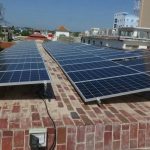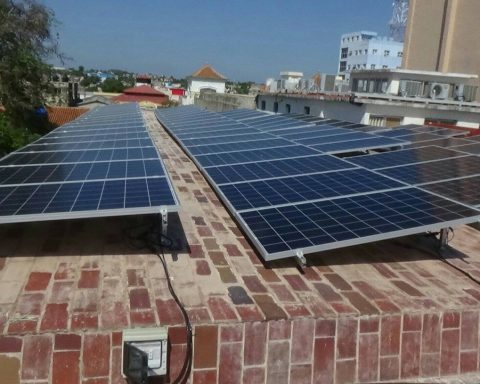The data includes the installed capacity of both large solar plants and private photovoltaic generation systems mounted in residences, industries and commercial premises, according to calculations released by the Brazilian Association of Photovoltaic Solar Energy (Absolar).
“With this conquest, the solar source exceeds the installed capacity of the Itaipu hydroelectric plant (14 GW), the second largest in the world,” said the employers’ association in a message posted on its social networks.
According to Absolar, the large solar generation plants already in operation in the country have an installed capacity of 4.7 gigawatts, while private generation systems with solar panels have a total capacity of 9.3 gigawatts.
The employer assures that, by surpassing the bar of 14 GW of power, solar energy is already the sixth largest source in Brazil’s energy matrix, surpassing thermal oil and other fossil fuels.
The 4.7 GW of capacity of large solar plants represent 2.4% of the Brazilian electricity matrix, whose capacity reaches 196 GW, mostly from hydroelectric sources (65%), thermal (21% including gas plants natural) and wind (10%).
Solar’s share of the Brazilian power matrix is set to jump in coming years as the regulator has already granted licenses for projects with capacity to generate 31.6 GW.
According to Absolar, the strong increase in the number of solar plants in operation in the coming years will be due both to the increase in electricity rates, to the water crisis that Brazil suffered last year and that left the hydroelectric dams at minimum levels and to the entry into force last January of the legal framework for solar energy, which included various incentives.
In addition to increasing the share of renewable energy in the Brazilian electricity matrix, solar energy has prevented the emission of 18 million tons of carbon dioxide (CO2) in the last ten years in Brazil and has contributed to mitigating global warming, according to the patronal.
The entrance Brazil’s solar generation capacity already exceeds the Itaipu hydroelectric plant was first published in diary TODAY.

















